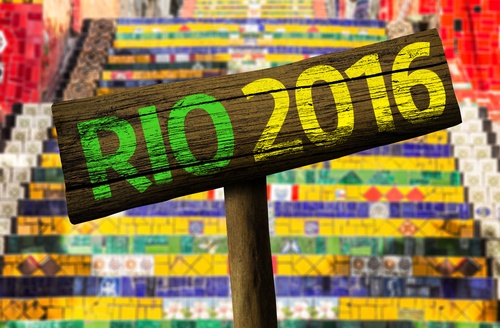
Do you remember the old joke about European culture that was popular on t-shirts back in 80’s, before food and cooking in the UK became world class? Heaven is where the police are British, the cooks are Italian, the mechanics are German, the lovers are French and it is all organized by the Swiss. Hell is where the police are German, the cooks are English, the mechanics are French, the lovers are Swiss, and it is all organized by the Italians. And while you’ll need to jump a continent, you could probably add to the list—and all the Olympics take place in Brazil.
The news coming out of Rio in advance of the Olympics is nothing short of grim. (All of which is summed up nicely here.) Trying to find a bright spot. Desperately looking for the one upbeat article I could blog about. But outside of inspiring individual athlete profiles, I couldn’t find one. All of which begs the question as it relates to the opening heaven and hell joke, are there certain cultural considerations that should be taken into account before decisions, small and large, are made?
I love Rio de Janeiro, Brazil and the Brazilian people. I have vacationed in Rio and worked in Sao Paulo. My son even plays on a soccer club in the US coached by Brazilians and called Brazil Stars. Brazilians possess many wonderful cultural qualities that–warmth, generosity, friendliness, humor, creativity, commitment to family and friends, food, dance, a genuinely joyous disposition. However, other qualities such as organization, timeliness, meeting deadlines, institutional and governmental discipline and oversight are not what you’d call characteristically Brazilian.
Yes, in 2009 when the International Olympic Committee awarded the Olympics to Brazil—as were all the BRIC nations—was on an upswing. Nevertheless, corruption and poverty was still rampant and in a city of 6 million there was still only one sewage waste treatment facility. In fact, included as part of Rio’s original Olympic bid was a multi-billion dollar pledge to build another eight sewage treatment facilities and to “set a new standard of water quality preservation for the next generations.” And as a consequence of a multitude of factors, Rio was not able to build a single pledge sewage treatment facility.
Now, is this the fault of Brazil and Rio’s leadership? Yes, to a certain degree. Is some of it just bad luck that what in 2009 was the world’s the 6th largest economy and rising got creamed by an economic downturn? Absolutely, no question. But an often missed culprit in the equation is the IOC and the decision making process that put the city of Rio in an impossible situation. Seriously, what nation in the world could successfully take on so many massive public works projects in six short years and expect success? Let alone one with a history that would indicate otherwise?
Apologies for the self-serving turn, but this is exactly the kind of thing we teach at CultureWizard. When organizations do not factor relevant, powerful, historical cultural indicators they do so at their own peril. Whether it’s Wal-Mart thinking it’s a good idea to place American style greeters in front of their German stores or the IOC believing that Rio could revolutionize its environment in six years, they are setting themselves up for failure of olympic proportions. I know that predicting doom and gloom in advance of huge international events is now the new norm, but Rio really is in rough shape as the games approach. One thing we can count on are the wonderful cultural qualities which will make people of Brazil wonderful hosts and hope that the many athletes and tourists flooding into Rio have a safe and enjoyable time and the IOC takes a culturally relative and mindful approach to future Olympic games.
What say you out there in CW land? Do you think the IOC ignored culture in awarding the Olympics to Rio? Do you think these games are going to come off smoothly?
Want to learn more about Brazil? Download our pocket guide below!

